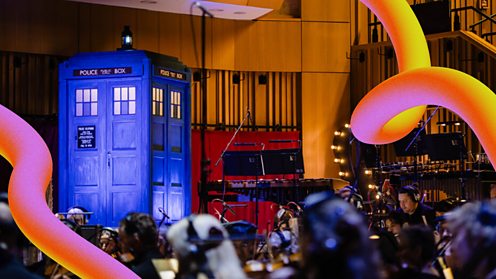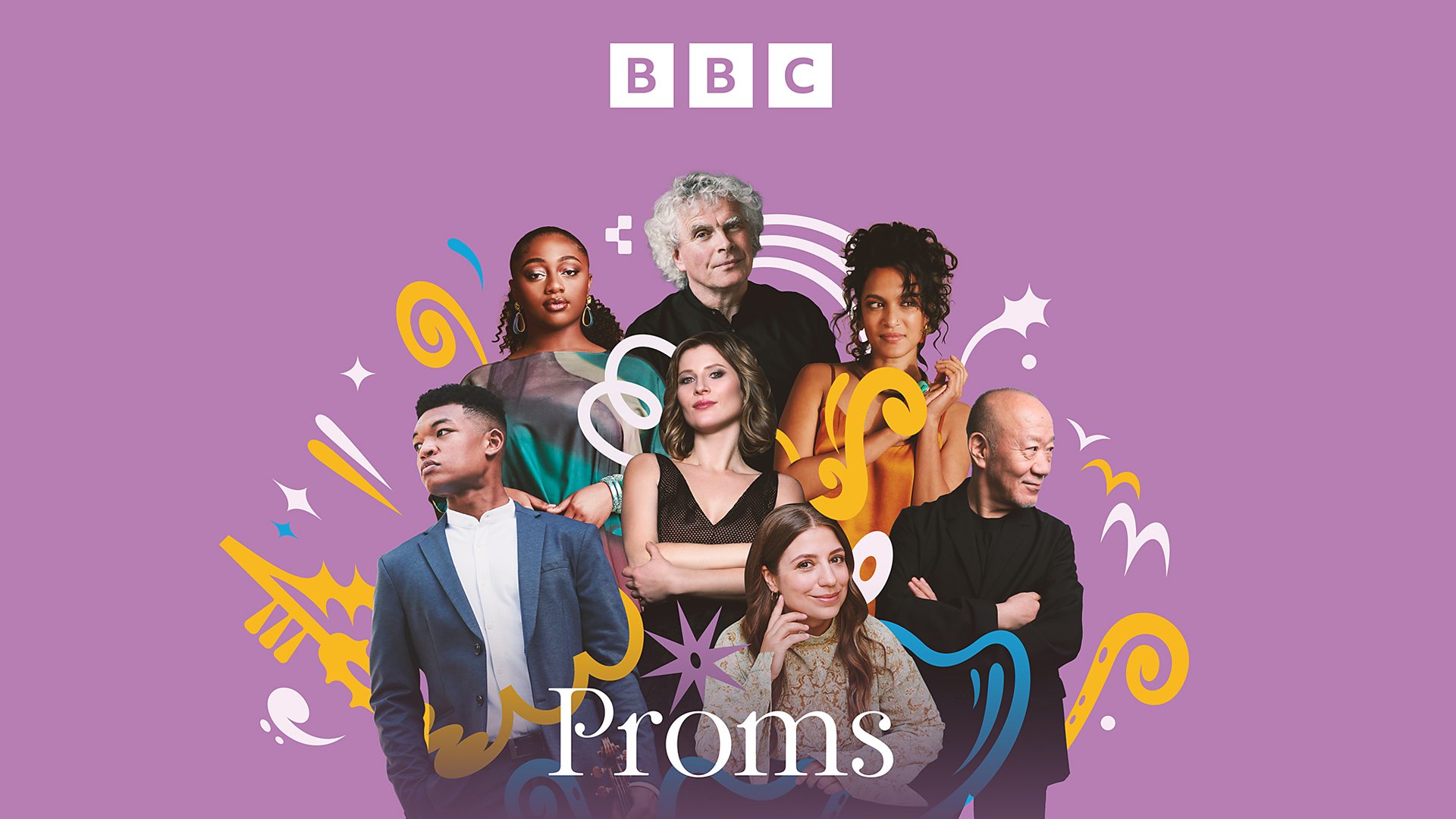As Doctor Who makes its much-anticipated return to the BBC Proms this summer, with a brand new show celebrating the Doctor’s latest adventures, we’re delighted to be singing in these spectacular concerts alongside the BBC National Orchestra of Wales, conducted by Alastair King. (check out the previous Doctor Who Prom on BBC iPlayer for a taste of the action!)
The two performances will feature sequences from the series on big screens, spectacular lighting and a host of special guest appearances – including monsters of course! We’re also delighted that our new Associate Chorus Director, Tori Longdon, will be preparing us for these concerts for the first time.
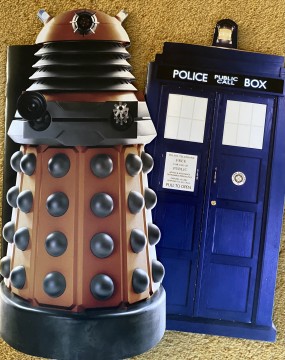
Doctor Who probably has one of the most instantly recognisable soundtracks in the world, and Proms 47 and 48 on Monday 26th August will be showcasing composer Murray Gold’s epic music for the series. Gold has been nominated for a BAFTA five times in the category “Best Original Television Music” and four times by the Royal Television Society in categories relating to music for television. His music is, of course, the soundtrack of Doctor Who from its relaunch in 2005 through to 2017, the new series from 2023, the 60th anniversary specials and these two sold out BBC Proms performances.
We caught up with the self-confessed reclusive composer over the airwaves from his London studio where he was was busy working on the final technical preparations of his music for these premier performances. We began by asking him about the practical and creative process of writing music for Doctor Who.
‘Writing music for me is closing the door on the world. When I’m fed up with what I’ve been listening to or just living every day life which can be exhausting, I can go back to my happy place and write music which in the end is my fun thing to do.
When I’m writing for a television programme or series I watch the shows and write for what I’ve seen, but I also write songs in advance when there’s a script – we call it the “in vision music” that’s needed before they start filming. When the new Doctor Who series came back this year Ruby, the main female character, needed a theme because she plays music on the roof of a building in “The Devil’s Chord” episode, and I knew the Doctor would need a theme, so they were both written and approved before the filming was done and signed off.
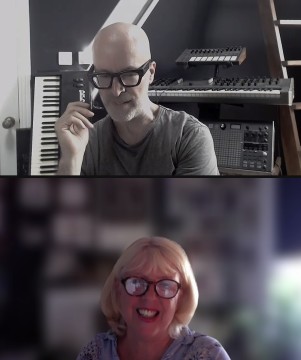
When it comes to the music itself and what I actually write, I draw on so many sounds, ideas and thought processes. There’s no kind of compartmentalisation between myself and the outside world. There’s no protection for me so when I feel stuff it just goes straight through my gut and into the composition. I often see music and sounds in colour and I have a very “ticky tacky” brain which is very, very associative – the style I have is quite relentless.
Recently I’ve started using a beautiful App called “Life” to help create tiny sections of my compositions. Wherever you are you can just record your sound surroundings – people, things, places; it catches 15 seconds and you can then make a little rhythmic collage of sound mementos. It takes the raw materials of your captured sounds and cuts and slices them up into little rhythm blocks which I drop into Doctor Who a lot. There’s one of my seven year old daughter saying “wow whack a wow wow” cut up and dropped into the music in this concert, and the Doctor Who theme currently has my breathless breathing on it in rhythmic patterns’.
What can we expect of your music in this Prom and where do the wacky titles come from?!
‘Well, each Doctor Who episode has 40 – 60 minutes of music and we have two hours maximum for the concerts, including the introduction and interjections, so we have to work creatively and efficiently to make things fit. This concert is mostly music scooped out of the TV show but I then write transitions which enable us to make suites out of episode cues. I write the transitions on piano and Alastair King (the conductor for the concert) orchestrates them.
The titles are working titles which is quite exciting – when we have a sequence of live concerts we’re minting new music for the first concert so it’s not been heard or named. At the moment we’re at the beginning of “Chuckle” so at least 70% of this music is brand new and has never been played before live so it hasn’t been commercially released and doesn’t have titles. So these titles are just place holders which can change from what you see below. “Space Babies Go Rogue” is simply an amalgamation of the “Space Babies” episode and one called “Rogue”. By the time the music is performed on the Proms platform there could well be another title!’
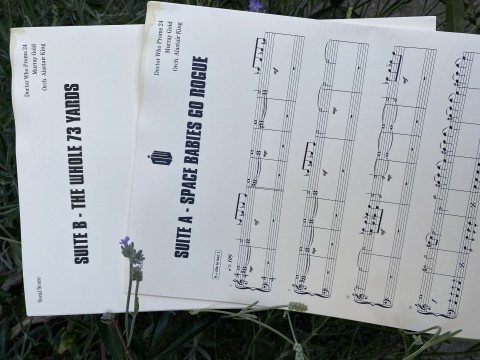
And finally, what about the place of Doctor Who in the world today – what has changed over 60 years?
‘So much has changed in the last couple of generations – I first watched Doctor Who aged three and no-one blinked. My daughters are five and seven and we don’t let them watch it yet because they have a strong sense of what a monster is and we don’t want them to be scared, so the sensibility in society has changed. It’s the eternal question – do you want children to be tough earlier or to preserve their innocence for longer? We definitely want them to be protected, but they will be at the concert so we’ll be hoping for a sofa for them to hide behind if necessary.
Doctor Who also links generations – it’s truly timeless. Every stage of Doctor Who shows the concerns of its era so you can go back and see what people were most worried about at that time – our version has the concerns of the current time of course. But regardless of time or time travelling, the heart of the Doctor Who programmes is so much in the right place in terms of wishing the human race well, which is a timeless generational message and one that people will always recognise and connect with.’
Come and hear us
Monday 26th August 2024
2.30pm and 7pm, Royal Albert Hall
Alastair John King conductor
Aida Garifullina soprano
Wendy Ebsworth BSL interpreter (2.30pm performance only)
BBC National Orchestra of Wales
London Philharmonic Choir
Proms 47 and 48: Doctor Who Prom

